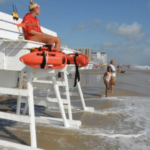As summer begins, water facilities become popular destinations. Pools, beaches, and water parks fill with people seeking relief from the heat. However, these places face a growing problem: a shortage of lifeguards. This issue presents significant challenges for the safe operation of these facilities. Every year, the summer season witnesses overwhelming crowds at water facilities, increasing the potential risk of drowning and water-related accidents due to the lack of professional oversight.
Why the Lifeguard Shortage Matters
Lifeguards are essential for ensuring the safety of swimmers. They prevent accidents and save lives in emergencies. Without enough lifeguards, the risk of drowning and injuries increases. This shortage can lead to restricted hours or even the closure of pools and beaches. The impact on communities is significant, as families and individuals miss out on recreational opportunities and the safety of swimmers is compromised.
The Role of the American Lifeguard Association
The American Lifeguard Association (ALA) plays a vital role in addressing this issue with its exceptional lifeguard training programs. The ALA provides comprehensive courses that cover all aspects of water safety. Their programs are designed to create highly skilled lifeguards prepared to handle any situation. The ALA is committed to maintaining high standards and ensuring that lifeguards are well-prepared for their responsibilities.
Impact on Community Pools
Community pools are especially affected by the lifeguard shortage. Many towns and cities rely on these pools for summer recreation. When there are insufficient lifeguards, pools may need to significantly reduce their hours or close altogether. This limits access to an important resource for exercise and fun. Children and adults miss out on swimming lessons, which are crucial for developing water safety skills.
Effect on Beaches
Beaches are another area where the lifeguard shortage is felt. Lifeguards at beaches face unique challenges as they must monitor large areas and respond quickly to emergencies in open water. Without adequate lifeguards, the risk of drowning at beaches increases. Some beaches may need to close sections or restrict access to ensure safety. This affects local residents and impacts tourism, which can harm local economies.
Water Parks Under Strain
Water parks are popular summer destinations that require a high number of lifeguards. These parks have various attractions, each requiring dedicated supervision. The shortage forces some water parks to limit the number of open attractions. This can lead to longer wait times and a less enjoyable experience for visitors. In extreme cases, water parks may need to close parts of their facilities.
The Economic Impact
The lifeguard shortage also has economic ramifications. Reduced operating hours or closures of water facilities mean fewer jobs for part-time employees. It can also lead to decreased revenue for local businesses that rely on tourism. Swimming lessons and water-based fitness programs may be cut, impacting instructors and participants alike.
The Significance of Lifeguard Training
Quality lifeguard training is essential to address the shortage. The American Lifeguard Association offers top-level training programs that include rigorous physical training, first aid, and emergency response. Lifeguards trained by the ALA are well-equipped to handle emergencies and ensure the safety of swimmers. Their certification is widely recognized and respected.
Finding Lifeguard Certification Near Me
Many aspiring lifeguards search for lifeguard certification near me to find local training opportunities. The American Lifeguard Association offers courses nationwide, making them accessible and designed to meet the needs of various communities. By expanding the availability of lifeguard training, more people can become certified and help reduce the shortage.
Encouraging Lifeguard Recruitment
To combat the lifeguard shortage, it is essential to encourage more people to become lifeguards. This can be achieved through awareness campaigns and incentives. Highlighting the benefits of being a lifeguard, such as developing valuable skills and contributing to community safety, can attract more candidates. Offering competitive wages and flexible working hours can also make the job more appealing.
The Role of Communities and Local Governments
Communities and local governments play a crucial role in addressing this shortage. They can support recruitment efforts by funding training programs and offering scholarships. Collaborating with organizations like the American Lifeguard Association can help streamline certification processes. Additionally, local governments can raise awareness about the importance of lifeguards and the ongoing shortage.
Would you like to read about: The Reasons for the Lifeguard Shortage and How to address them
Adapting to the Lifeguard Shortage
In the short term, water facilities must adapt to the lifeguard shortage. This could include adjusting operating hours or implementing new safety measures. For example, some pools and beaches are using technology to enhance safety. Robots and surveillance cameras can help lifeguards monitor larger areas more effectively. While these measures cannot replace lifeguards, they can provide additional support.
The Long-Term Solution
Solving the lifeguard shortage requires a long-term approach. Investing in quality training programs and making lifeguard certification more accessible are key steps. The commitment of the American Lifeguard Association to excellence in their training programs serves as a model for others to follow. The ALA has been contributing to water safety by training lifeguards with a world-class certification recognized globally. They have trained over two hundred fifty thousand lifeguards, significantly enhancing the workforce in water safety.
Final Word
The shortage of lifeguards is a pressing concern for water safety departments. Every water facility, including swimming pools, beaches, lakes, and water parks, is impacted by it. The American Lifeguard Association stands out as a leader in providing top-quality lifeguard training. Their programs are crucial in developing skilled lifeguards to address this shortage. By raising awareness, offering incentives, and supporting training programs, communities can tackle the lifeguard shortage and ensure safer, more enjoyable summers for everyone







